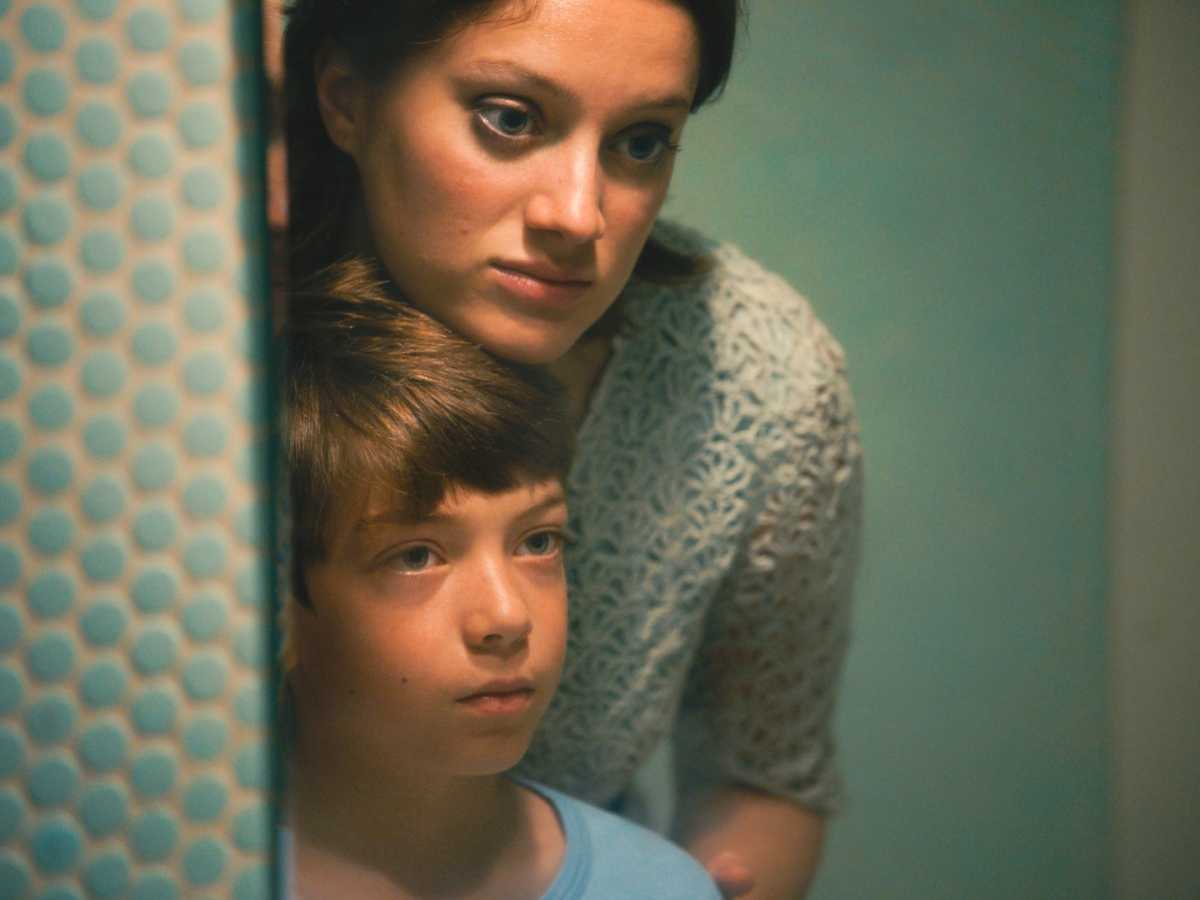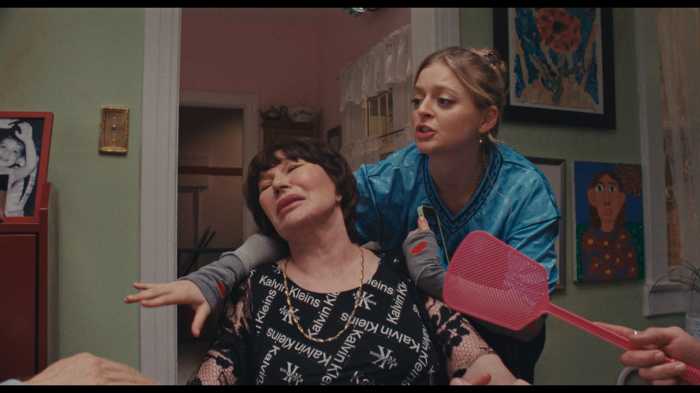Out gay writer/director Robin Campillo’s hypnotic drama, “Red Island,” inspired by the director’s own childhood, unfolds around a French military base in Madagascar from 1970 to 1972. The film is as perceptive as its sensitive 8-year-old protagonist, Thomas (Charlie Vauselle), who serves as the director’s alter ego.
“Red Island” opens with an animated story involving Fantômette, a caped female comic book character whose adventures pepper the narrative. Thomas is as observant as Fantômette, paying attention to clues dropped around him. He also wants to be Fantômette, and late in the film, he gets his wish, dressing up as his heroine in a cape his mother made him and her tights, which she loans him. He sneaks out at night to spy on adults in part because Thomas spends much of the film watching his parents. He peers out of a large shipping container in the family’s backyard, or peeks through a mottled glass door during a party where his parents dance with other partners. He even hides under the table when his folks and their friends are having a discussion about sex workers and disease.
Thomas absorbs all of what he silently pieces together — the real and the hidden. Campillo takes a similar approach to the storytelling, which chronicles the period Thomas’s family spends in Madagascar. The French are there as post-independence peacekeepers for the Malagasy people, although uprisings have increased, and the political situation is becoming more radical. Most of that hangs in the background until the end of the film, when things come to a head. This reflects the shifting nature of “Red Island,” but it also makes the film compelling because viewers understand the place, the people, and the history by the time the Malagasy take over the narrative.
The film is mainly a coming-of-age story for Thomas as well as the adult characters, including Thomas’s parents, Colette (Nadia Tereszkiewicz) and Robert (Quim Gutiérrez), to others, such as Bernard (Hugues Delamarlière), a handsome young man who works as a waiter in the officer’s mess hall. The French treat their responsibilities in ways that are typical of colonialism, paying attention to rank and privilege. There is a not-so-subtle racism that permeates throughout the film, and when Bernard’s wife Odile (Luna Carpiaux) leaves early on — she can’t take it anymore —he cozies up to Miangaly (Amely Rakotoarimalala), a young Malagasy woman who packs parachutes. Tongues wag, and Bernard gets an earful from the local priest, Father Bertin (Vincent Schmitt). He also gets a checkup from the local doctor.
Campillo’s strength as a filmmaker is to wholly immerse viewers in this world, and he does this with a film as rich and as visually textured as the lives of the characters presented. The marvelous surface of an aragonite table that Thomas rests his head on is contrasted with the landscape Malagasy soldiers land on in one of several striking juxtapositions. As Robert looks out the circle of an airplane window, the image is doubled in an Fantômette episode. Even the gravel outside the officer’s mess is palpable, as is the sound it makes when people walk on it. Campillo uses sounds and silence effectively, imbuing the film with a dreamlike quality, from a tender kiss between Robert and Colette or during a sequence when Robert brings home a trio of baby crocodiles for his kids. (It is one of his many bad parenting ideas).
“Red Island” does feel like a collection of memories rather than a linear narrative, but that works in the film’s favor. The oppression of the toxic male (read: colonial) environment creates the dramatic tension. Whereas Thomas has a real close, loving relationship with his mother, his interactions with his father are mostly fraught. Robert calls Thomas a sissy twice and is only rarely affectionate with him; in contrast he has fun showing naughty photos to Thomas’ two older brothers.
And while Thomas is not privy to every scene, there are flashbacks that describe events unseen. Two soldiers die after they fall out of a rowboat, and Thomas’ best friend, Suzanne (Cathy Phan), recounts a story where she witnessed Bernard falling during his workday and wetting in his pants. These moments, like many in the film, reveal the hidden lives of the characters, and they make fascinating asides, expanding on the various characters’ lies and illusions. A scene late in the film features Thomas spying on Bernard dancing with Miangaly and trying to possess her — not unlike the French colonizing the Malagasy.
Campillo makes these connections subtly, and the power of his film is in showing the racial and gendered politics through Thomas’ eyes and ears. When he witnesses (or hears) the interactions between his parents, he develops a greater understanding of the world around him. Viewers do too. Campillo rewards audiences who sink into the film’s rhythms and pick up on the cues that are both shown and coded.
“Red Island” is a masterful film about learning to live authentically in a repressive environment.
“Red Island” | Directed by Robin Campillo | Opening at the Film Society of Lincoln Center on August 16 | Distributed by Film Movement





































